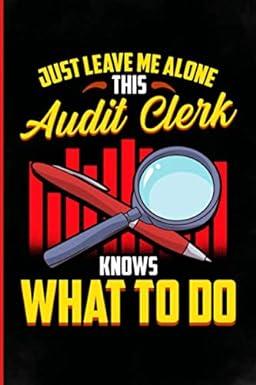Question
1) We are analyzing 2 products product X and product Y. Product X requires 4 Part As and 3Part Bs. Product Y requires 3 Part
1) We are analyzing 2 products product X and product Y.
Product X requires 4 Part As and 3Part Bs.
Product Y requires 3 Part As and 2 Part Bs.
The standard cost for Part A is $24 per unit.
The standard cost for Part B is $12 per unit.
During this month, the company purchased 50,000 units of Part A for $1,220,000 (there was no beginning balance).
During this month, the company purchased 50,000 units of Part B for $590,000 (there was no beginning balance).
During the month the company produced 500 Xs and 1000 Ys.
During the month the company used 4950 units of Part A and 3540 units of Part B.
Factory payroll was $393,000 with 19,500 hours (this is actual - direct labor only).
X uses 14 standard direct labor hours.
Y uses 12 standard direct labor hours.
Labor standard cost is $20 per hour.
Hint: for production of both X and Y Questions
1-25: Suggestion: Use a scratch paper to solve all the variances first, then answer the questions.
2) Use the information given in Problem I.
| Departments | $Costs | Activity cost driver |
| Supplies | $22,800 | Direct labor hours |
| Assembling | $12,750 | Units of standard direct material (Parts) |
| Packaging | $10,050 | Completed units |
Questions 26-50: Solve first then answer the questions.
Questions to answer (please number the answers)
1) DL - Total Variance
2) DL - Actual Cost (total)
3) A - Use (Quantity) Variance
4) A - Use (Quantity) Variance (Fav/Unf)
5) Rate (Labor Price) Variance (Fav/Unf)
6) A - Direct Material Total Variance
7) B - Use Variance (Fav/Unf)
8) A - Price Variance
9) A - Actual Cost (Total)
10) DL Total Variance (Fav/Unf)
11) DL - Efficiency (Labor Quantity) Variance (Fav/Unf)
12) DL - Flex budget
13) B - Price Variance (Fav/Unf)
14) B - Standard Cost (Total)
15) A - Standard Cost (Total)
16) DL Efficiency Variance (Labor Quantity)
17) B - Direct Material total variance
18) A - Price variance (Fav/Unf)
19) A - Flex budget
20) B - Direct Material Total Variance (Fav/ Unf)
21) B - Price variance
22) Rate variance (Labor price)
23) A - Direct material Total Variance ( Fav/Unf)
24) B - Use ( Quantity) variance
25) DL - Standard cost (Total)
26) B - Flex Budget
27) B -- Actual Cost (Total)
28) Using Direct Labor Hours, what is the Overhead unit cost of Y using the "traditional" method?
29) What is the Overhead unit ABC cost of Y?
30) What is the ABC allocation of A?
31) What is the ABC allocation of B?
32) What is the DL cost per unit for HB (using standard)
33) What is the total unit ABC cost of X?
34) Using DL hours, what is the total unit cost of X using the "traditional" method? (round to cents)
35) Using the DL hours, what is the total unit cost of Y using the "traditional" method?
36) What is the ABC allocation Rate for producing?
37) Using DL hours, what is the total allocation of Overhead costs to X using the "traditional" method?
38) What is the ABC allocation of the production cost of X?
39) What is the DM cost per unit for X (using standards)
40) What is the ABC allocation of producing cost of X?
41) Using DL hours, what is the Overhead unit cost of X using the "traditional" method? (round to cents)
42) What is the ABC allocation Rate for product X?
43) What is the Overhead unit ABC cost of X?
44) What is the DM cost per unit for Y (using standards)
45) Using DL hours, what is the Overhead unit costs to Y using the "traditional" method?
46) What is the DL cost per unit for Y (using standards)
47) What is the total unit ABC cost of Y?
48) Using direct labor hours, what is the allocation rate using the "traditional" method?
Step by Step Solution
There are 3 Steps involved in it
Step: 1

Get Instant Access to Expert-Tailored Solutions
See step-by-step solutions with expert insights and AI powered tools for academic success
Step: 2

Step: 3

Ace Your Homework with AI
Get the answers you need in no time with our AI-driven, step-by-step assistance
Get Started


